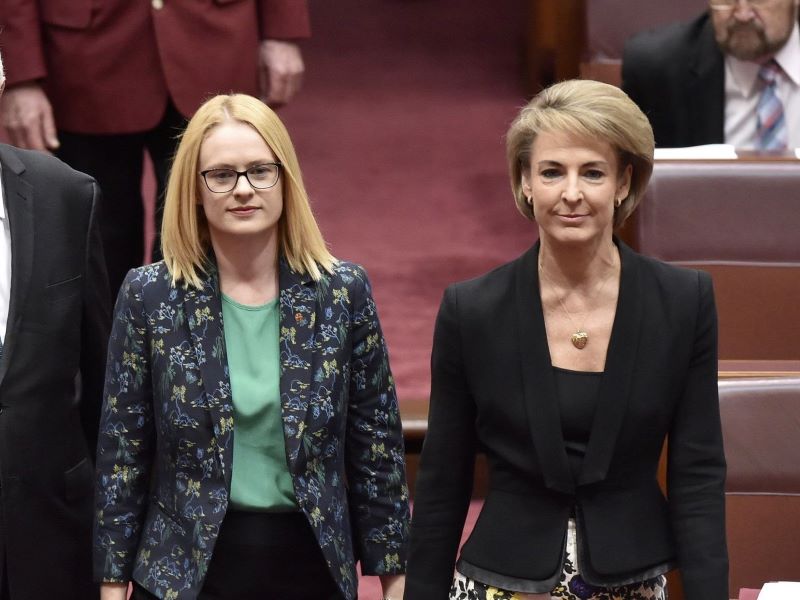The Coalition government is considering a nomination for the next director general of the National Archives of Australia as it finalises new legislation for the troubled agency.
On Tuesday night assistant minister to the attorney-general Amanda Stoker fronted a Senate Estimates hearing and confirmed a candidate to lead the National Archives has been recommended to cabinet after a global search.
Senator Stoker also committed to releasing the government’s proposed changes to the Archives Act before the election, saying the update would address some of the problems which have plagued the agency for years.

A damming 2019 review of the National Archives found serious resource pressures had put records at-risk, created cybersecurity vulnerabilities, and created a massive backlog of access requests.
The review recommended structural reforms, changes to the Archives Act and long-term funding of up to $167 million, which has been endorsed by most recent director general David Fricker.
A government response more than 18 months later included only $67 million in additional funding for the agency to digitise and archive its most at-risk records, bring on staff to deal with a backlog of access requests, and bolster cyber defences.
Mr Fricker, whose 10-year tenure ended in December, has welcomed the $67 million lifeline funding but shortly after retiring warned it will not be enough and “the place will fall off a cliff again” without long term funding.
On Tuesday night National Archives officials told the Estimates hearing the digitisation is underway, and it is recruiting more staff to deal with the backlog of access requests thanks to the funding boost.
Senator Stoker said a global search for the next director general has concluded, with a nomination being put to federal cabinet.
The assistant minister also confirmed changes to the Archives Act had been considered and draft legislation is “on its way”. However, with only a few sitting days left, she would not commit to it being introduced to the current Parliament.
“We’ve given all of the necessary instructions and it is just waiting at the drafting stage with the Office of Parliamentary Council,” Senator Stoker said.
National Archives officials also faced questions from crossbench Senator Rex Patrick and Labor Senator Kim Carr at the hearing about how it assesses and releases historical government documents.
Officials at the agency review government documents, overwhelmingly releasing most of them. But some are deemed exempt from release, often based on the advice of other security and foreign affairs agencies.
Some of the exemptions have frustrated both Senator Patrick and Senator Carr, who have each been denied access to historical government documents, including in the latest release of previously secret 2001 cabinet documents under the 20-year rule.
Senator Stoker said Archives had begun work on improving its information management and declassification capability as part of the response to the 2019 review, and she is confident the improvements along with more digitisation, storage consolidation and reforms to the Archives would lead to better records access.
“The commitment that’s been made for information management and declassification capability is about making sure that agencies understand where those [exemption] limits should be properly drawn, and equipping those within the Archives to be able to make the best possible calls when it comes to applying the act. And I think both of those things will help,” she said.
Do you know more? Contact James Riley via Email.

